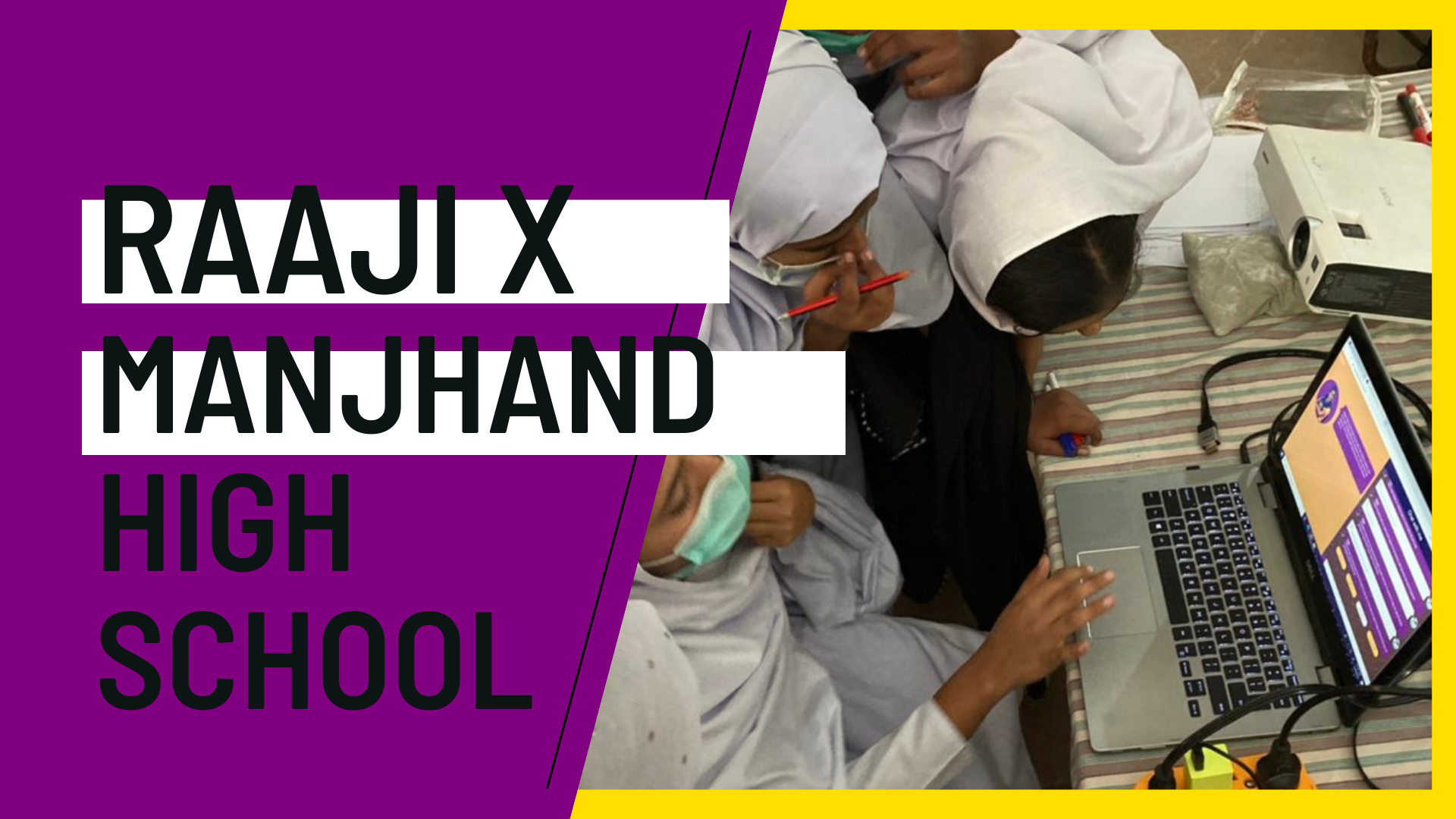TRDP helps Raaji reach schools in Manjhand
It's often the case that adolescent girls in Pakistan are ill-equipped to manage their menarche. This is why our partner TRDP helped us access Government High School Manjhand to conduct an MHM education session with 45 schoolgirls of different age groups. The girls were attending different grades from ninth to matric and intermediate. Our methodology for the pilot included personal narratives, shared storytelling, and a technology-driven curriculum to talk about the basics of menstruation. While using our Laptop & projector in class, we were hoping teachers would see these tools as something that could be used long term to benefit communities.
We were fortunate to get a very warm welcome by the School Head Master, Muhammad Saleh Memon. He embraced the topic with sensitivity and gave his permission to conduct continuous sessions in school. He briefed our team about the school, management & the environment.
The girls were super confident and eager to learn. Once the school headmaster had made introductions, he left us to begin the training session. There were no male members present. After sharing ethical disclaimers on consent and privacy, we started the session. We tapped into their energy and did a group clapping energiser.
Sharing our own menarche story really allows other people to open and share their experiences as well. We tried that technique interspersed with small facts about menstruation and the societal/anthropological/biological perceptions around it.
A questionnaire was then distributed among the students to gauge their existing knowledge around menstruation. The questionnaire was supplemented by an art activity where students were asked to take some color pencils and express their personal stories or associations around MHM either through drawings or writing.
A short video introducing ‘Raaji’ and the need for MHM education was shown to the students. Because there were many students and the sound did not reach the end of the classroom, the video was shown twice by rotating the girls sitting in the front and the girls sitting in the back.
The girls were then asked about their digital device usage: most, if not all, the girls had never used a laptop but most, if not all, the girls had used phones and even possessed their own. As the students continued with their questionnaire and artwork, small batches of girls in groups of 10-12 who had completed the questionnaire and artwork would come forward and interact with the Raaji chatbot on the laptop.
The session then broke up organically into small groups with some girls crowding around to ask questions and talk while others continued interacting with the Raaji chatbot.
A short Q&A session was held where girls asked us various MHM-related topics like PMS symptoms, whether cloth pads or commercial pads were better to use, hygienic questions, etc.
The session was concluded by asking the students not to feel worried about menstruation, by reiterating that it was a normal part of growing up, and that it was important to spread this knowledge to other people. The students were asked if they had felt that this workshop had been beneficial to them.
Strategies about taking this work forward were briefly discussed.
Afterwards, the headmaster organized a small concluding ceremony where he emphasized to the girls that they needed to take care of themselves and their health. We were given cultural presents like Ajraks for visiting the school & conducting the session.
Finally, we returned to the head master’s office and discussed strategies for sustaining the work started by this session.
Learnings
Most of the lessons observed in the previous workshop held true for the high school students.
A main difference seen in the participants was that the younger girls were more digitally eager, aware, and tech savvy in terms of phone usage than the older women from the previous session. This signified that using digital tools like the Aurat Raaj chatbot and website could potentially be used on a mainstream basis by younger people who were already digitally familiar.
The specific questions related to personal PMS and other menstrual-related illnesses, symptoms, side-effects, etc. could not be ethically answered by our team as we were not qualified doctors and were not privy to the person’s medical history. It would be crucial to collaborate with doctors or medical start-ups so that qualified doctors can tackle this side of the awareness session.
Reporting by Anjum Malik & Khimchand Sanjo
.png)




